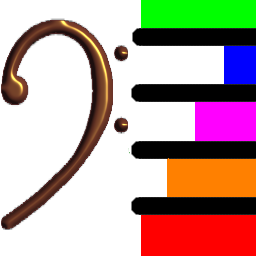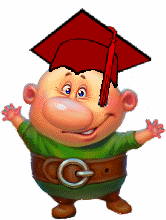Preparatory A (from 2+). Lesson 48

Your FREE Demo version is here
Your full version access is here
In our Pedagogy class today is:
The Center Of Music Universe
The number, the letter, the music note -- this is the very foundation of the world of words, numbers and sounds.
Humanity has mastered the numbers and letters. But the music notes are completely out of focus.
Note (lat. Nōta - “sign,” “label”) - a graphic image of a musical sound, as well as the sound itself.
Imagine math lessons in schools where your child is taught the biographies of great mathematicians and the ability to visually distinguish an equation from multiplication. And on exams they are asked to point their finger at a line where there is a multiplication or subtraction sign. In this case, the study of numbers is introductory and takes place somewhere in the third grade.
Imagine that in reading class your child is taught poems and songs. They learn to distinguish iambic from chorea by ear. They listen to poetry performed by actors without any introduction to the letters a, b, or c.
How productive would that be?
Today, that is how music is generally taught in most public schools.
Music education in school is an “autistic subject,” in a metaphoric meaning of the word. The major problem of most music curricula is a lack of focus.
I see it as one of the biggest global problems of our modern society.
A note has three main parameters:
a pitch (the number of vibrations of a sound wave),
a position on the music staff (on a particular line or space) and
a duration
These three elements are one, but in school are taught separately from the start.
Singing songs in general music lessons has nothing to do with reading notes from the staff. Learning the rhythm and meter with the help of percussion instruments is in no way connected with discovering the number of sound vibrations or reading the notes from the staff.
Such musical activities generate nothing but chaos.
In this complete chaos, children in music lessons do not learn to perceive a note in its trinity. Instead, we develop in children a sense of uncertainty, destructiveness, and unpredictability of the consequences of a particular action. Some students in this chaos learn some skills not because of, but in spite of, the lessons. Most of the student body toils in boredom and confusion through the process of learning everything and nothing.
Thanks to such lessons of “music,” we instill in children the perception of the world not as a single and harmonious whole, where all elements are interconnected, interdependent. We instill in children a picture of the world in which there are many disconnected pieces of puzzles, and you are all alone -- the center of the Universe. In the world that we program for our kids in public schools, we develop their self-centered attitude with no regard for other living creatures.
The musical chaos in our heads fills most of our consciousness every minute. Whether we like it or not, it acts on a subconscious level on each of us. Without teaching students to focus on a note as a trinity of one, the harmony and interrelation of the elements of the world become impossible for an unprepared person to recognize. Especially a child!
Instead of a means of educating and developing spiritually, music becomes the secret weapon of manipulation. Children drink alcohol and do drugs at concerts of this type of music. This is not what music is supposed to do for people.
All pop culture, advertising, and mass media are built on using music as the main emotional manipulator.
Divide and rule. This slogan fits best today in teaching "music" in schools, where there is no focus on the main element of music -- the note. Separating the trinity of the sound of notes and duration into distinct elements and depriving children of the elementary opportunity to become musically literate, we form in them anything but complete, creative souls. Not seeing and not perceiving the harmony and interrelations of all the elements of music, we destroy nature, the land on which we live, ourselves. And each other.
In fact, it is with the help of the trinity of the main element of music that the concept of the Trinity can be explained to children as the union of vibrations (God), the sign (Spirit), as well as the beginning, development and completion of live sound (Jesus Christ). The Bible helps us to understand the true, Divine property of sound, in which the elements of vibration, sign and a certain duration (birth -- life on earth -- the completion of life on earth) are one.
And I ask you to note that in this context the Bible is related not so much to religion, as to the spiritual, multidimensional perception of the world, as a whole and, with us in it, as the elements of complete harmony.
I am sure that starting a child learning music from a note, a child would be able to quickly determine his spiritual orientations. In each of us there are both the Earthly and the Heavenly. Depriving the person of the note, we deprive him from making a choice.
Why is it important for each of us?
General music at school is a state-required subject. With all the public rantings about the “luck of funds,” a huge amount of money is allocated annually to keep music lessons in public schools out of state budgets. The schools’ loss of all these funds is not for the benefit but to the detriment of our children.
Why is music education that doesn’t focus on the music note harmful for our children?
Without notes, music lessons at school teach children that the world is chaotic and that to break through in this chaos is the only purpose of existence.
Musical notation and communication one-on-one with each note teach the child the value of every moment because he visually experiences the beginning, the development, and the completion of each sound. Seeing the music notes together in a piece, the child learns to treat life as an invaluable gift in which the creation of anything is a project. There is a beginning to the project – a development and a completion.
Without the ability to read a musical text, children waste hours of their time pretending to learn something without ever actually learning a thing, a habit that becomes the norm for their attitude toward life.
The industry of celebrities and stars is the crest of this dirty "musical" wave that has swallowed up modern society. Departure from the trinity of the notes has over-simplified and vulgarized the language of music. The scarcity of focus on the note is compensated for by all the mindless visual effects that hold a person’s attention at any cost.
This is a sign of the extinction of the ability of society to adequately perceive higher musical vibrations, to be able to focus, and to develop memory and a longer attention span.
What we today call “general music” in schools requires an immediate reappraisal and revision to avoid more serious consequences for modern society and its intellectual and spiritual future.
...
Keep practicing all exercises
....
 Bass Staff Puzzle
Bass Staff Puzzle
Goal:
These modules help the player to memorize the position of any music note on the Bass Clef.
Rules
Use Left or Right arrow on the computer keyboard to place music notes on corresponding lines and spaces of the Bass staff. Use the Space key to make a note fall faster if the note is in the correct position. The correctly positioned note images compose a picture and give you points. Every completed picture opens a part of the portrait of Mozart in the right part of the screen. You have 49 different pictures to open Mozart's portrait and finish the module. Beginners should start by only playing for a short time. Please, contact our professionals for your customized guide lines playing this module!
Computer control keys
LEFT arrow - Move falling notes left or down.
RIGHT arrow - Move falling notes right or up.
Space key - Make note fall faster.
A - Switch the program to Alphabetic (A, B, C ...) note names
I - Switch the program to Italian (Solfeggio: Do, Re, Mi...) note names
Ctr-X - Exit the program.
Note name convention
Soft Mozart®uses both Alphabetical music notation - C, D, E, F, G, A and B, and “Solfeggio” or Italian music notation - Do, Re, Mi, Fa, Sol, La and Ti.
Program Keys
To switch to the Alphabetical name convention press computer key A.
To switch to the Italian name convention press computer key I.
We recommend...
...the use of the Italian (Solfeggio) note name convention by any beginner or child. Its note symbols are very easy to identify and remember, even by those who can't read yet. And most importantly, Italian note names are specially designed for singing. The singing of note names helps any beginner to form a crucial musical skill to connect a pitch of a note with its name, and tie together his or her ear, voice and brain.
Tips
- Play several notes in a row correctly (the number depends on the module stage) and the program will switch to the next level of difficulty. You will get more points for every correctly played note, but the notes will move faster.
- If you make two mistakes in a row, the module will switch to a lower level of difficulty
Few words...
These modules train and develop a basic skill in music reading - to attribute any note name to a corresponding line on the Bass Staff. The original design asks the player for a momentary reaction in recognizing correct lines. In the advanced level only the subconscious vision of the correspondence of lines and notes may help the player finish the module successfully. An advanced student can finish this module in 25 minutes (13 minutes module time); beginners should start by only playing for a short time. Please, contact our professionals for your customized guidelines for playing this module!
Learn how to play this module and teach your toddler to play it for couple of minutes of the game time.
....
 GENTLE PIANO
GENTLE PIANO Keep practicing and recording all the piano pieces.
Keep practicing and recording all the piano pieces.
Practice Nursery Primer on R, L and P *optional*
....
Sincerely yours, Hellene Hiner.
Video sample:
PS
All the lesson plans:
for 24 months to 3 year old
3 year old to 5 year old
5+ year old
Intensive Course for Adults-beginners
Always check here, if there any recital in the progress! You and your child will benefit a lot from the participation.
Your place to start your Diary is here

